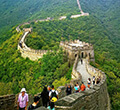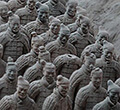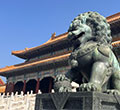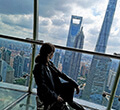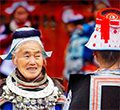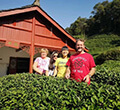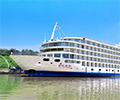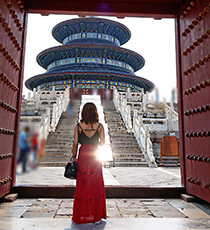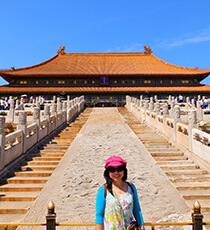- Home
-
China Tours
Most Popular China ToursEssential China TripsFind China Tours by MonthFind China Tours by Duration
- Customize
-
Experiences
Popular ExperiencesMore Experiences
-
Yangtze Cruise
Top Deals for Chongqing⇆Yichang CruiseUseful Cruise Guide
-
Destinations
Most Popular DestinationsPopular Provinces with Diverse ExperiencesPopular Cities to Visit
-
Travel Guide
Destination GuideTour PlanningVisa & EntryChina TrainsChina FlightsChina WeatherTravel ArticlesPopular Destination Travel GuideChina Tour Planning
- How to Plan Your First China Tour
- How to Plan Beijing Tour
- How to Plan Xian Tour
- How to Plan Shanghai Tour
- How to Plan Guilin Tour
- How to Plan Sichuan Tour
- How to Plan Family Tour
More China Tour Planning IdeasChinese Visa- Ultimate Chinese Visa Guide
- 30 Days Visa Free
- 240-Hour Visa Free
- Chinese Visa Types
- Chinese Visa Requirements
- Do I Need a Visa for China
- Chinese Visa Application
- Chinese Visa Exemptions
- Shenzhen Visa on Arrival
- Hainan 30-day Visa Free
- Embassies & Consulates
- Invitation Letter
- Useful Visa FAQs & Tips
Entry & Exit RegulationsChinese Train Tickets- How to Book Train Tickets
- How to Collect Train Tickets
- How to Cancel & Alter Train Tickets
- How to Read Train Tickets
Everything about China Trains- China High Speed Train Types
- Seats Class & How to Choose
- Friendly Facilities on the Train
- The Train Station Departure Process
- Available Food and Drinks on the Train
- Western Toilets on the Train
- Luggage Racks & Baggage Allowance
Important Train Stations- Beijing Train Stations
- Shanghai Train Stations
- Guilin Train Stations
- Xian Train Stations
- Chengdu Train Stations
- Hong Kong West Kowloon Railway Station
Popular Train Routes and SchedulesChina's Major Airports- Beijing Capital International
- Beijing Daxing International
- Shanghai Pudong International
- Shanghai Hongqiao International
- Guangzhou Baiyun International
- Hangzhou Xiaoshan International
- Chengdu Tianfu International
- Chengdu Shuangliu International
- Xian Xianyang International
Popular Flight RoutesChina's Four SeasonsMonthly Weather and Wearing, Packing IdeasMostly-read China Travel Articles- Top 10 China Destinations
- Top 15 Things to Do
- China World Heritage Sites
- Top 10 Best Natural Beauties
- Top 10 Museums in China
- Top 10 Old Towns & Villages
- Five Great Mountains in China
- Top 10 Monasteries & Temples
- Top 10 Ski Resorts
- Top 10 Beautiful Lakes in China
- 7 Best Beaches in Sanya
- Top 6 Beautiful Waterfalls
- Panda Loving Care
- Having fun on Ice and Snow Festival
- About Us
- Tour Experiences
- Destinations
- Travel Guide
- About US
Find your idea
